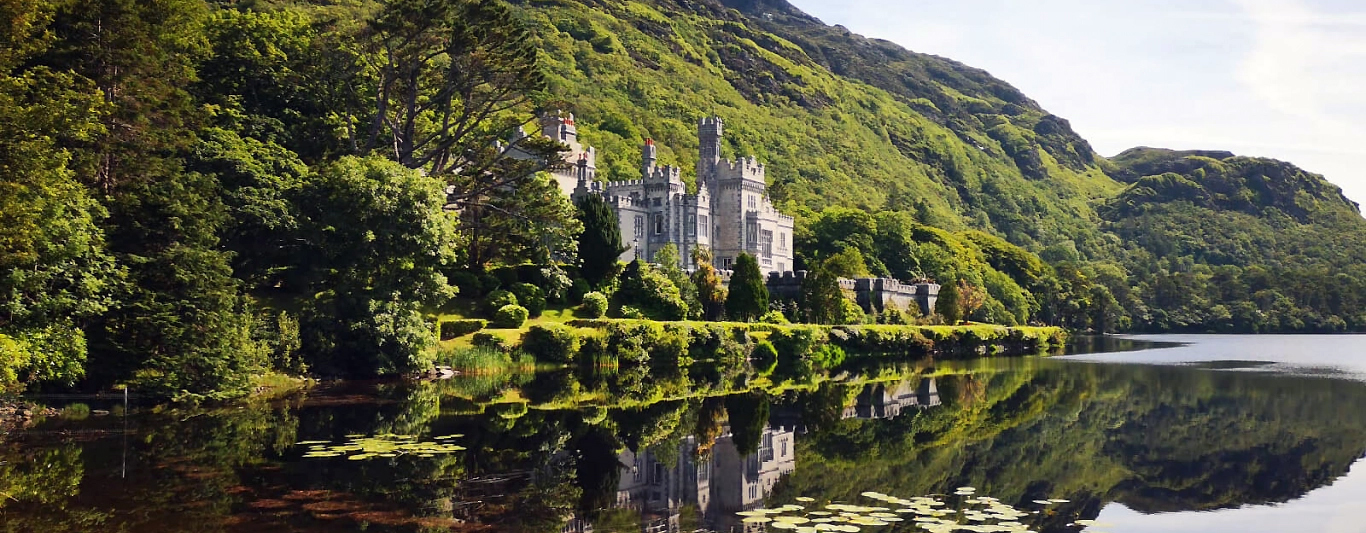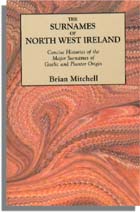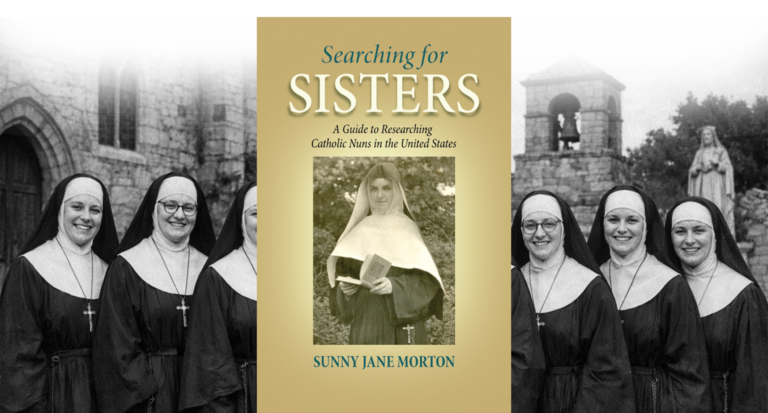
The Carlins of North West Ireland: A Representative Surname History, by Brian Mitchell
The following one-page history of the Carlin clan associated with County Donegal and County Derry is indicative of what the reader can expect to encounter with each of the 300+ histories of surnames compiled by Brian Mitchell in his book, The Surnames of North West Ireland: Concise Histories of the Major Surnames of Gaelic and Planter Origin. The author believes that these histories document the surname origins of over 80% of people with roots in North West Ireland. These surname histories are also relevant to those whose ancestors originated in the northern province of Ulster (i.e. Counties Antrim, Armagh, Down, Fermanagh, Londonderry and Tyrone in Northern Ireland, and Counties Cavan, Donegal and Monaghan in the Republic of Ireland). To learn about the other surnames covered in Mr. Mitchell’s new book, please visit the URL at the conclusion of this article.
The O’Carlin sept trace their lineage to Eogan, son of the 5th century High King of Ireland, Niall of the Nine Hostages, who ruled from the Hill of Tara, County Meath. Eogan and his brother Conall Gulban conquered northwest Ireland, ca.425 AD, capturing the great hill-fort of Grianan of Ailech in County Donegal.
Eogan, styled ‘King of Ailech’, established his own kingdom in the peninsula in County Donegal still called after him Inishowen (Innis Eoghain or Eogan’s Isle). His descendants, known as the Cenel Eoghain (the race of Owen), became the principal branch of the Northern Ui Neill (descendants of Niall of the Nine Hostages). The Cenel Eoghain in the next five centuries expanded to the east and south from their focal point in Inishowen.
Ireland was one of the first countries to adopt a system of hereditary surnames which developed from a more ancient system of clan or sept names. The surname was formed by prefixing either Mac (son of) or O (grandson or descendant of) to the ancestor’s name. Carlin and O’Carolan, an earlier anglicized form of the name, are derived from Gaelic O Caireallain.
The O’Carlins were the leading sept of Clann Diarmata, i.e. Clan Dermot. In County Donegal they were erenaghs, i.e. hereditary stewards, of the church lands of Clonleigh in the barony of Raphoe. They also seized a portion of O’Gormley territory around Donaghmore, County Donegal in the late 12th century.
Clan Dermot was, in turn, a branch of Clan Connor Magh Ithe (Connor was a direct descendant of Eogan). Magh Ithe is the rich countryside stretching southward from Inishowen, later known as the Laggan district in east Donegal. In the 10th century AD the families of Clan Connor moved out from the cramped territory of Magh Ithe and established themselves in County Derry, in the kingdom of Keenaght, to the north of the Sperrin Mountains, from the Foyle to the Bann rivers.
In the process they ousted the Cianachta whose leading sept was the O’Connors of Glengiven in the Roe Valley.
By the 12th century when the process of conquest ends the various septs of Clan Connor were firmly settled in County Derry. Clan Dermot, who gave their name to the parish of Clondermot or Glendermott, and its chief family O’Carrolan were firmly established to the south of the Faughan river.
The O’Carolans were very powerful in the neighbourhood of Derry during the 12th century, and were mentioned frequently in the Annals of Ireland. In 1177 Niall O’Gormly, Lord of the men of Magh Ithe, was slain by Donough O’Carellan and the Clandermot in the middle of Derry Columbkille. In the same year a Norman raiding party led by John de Courcy slew Conor O’Carellan, chief of Clandermot. In 1200 Egneghan O’Donnell, Lord of Tirconnell defeated Clan Dermot in a battle at Rosses Bay, a short distance north of Derry.
The surnames Carlin, O’Carlin and O’Carolan have also been anglicised to Carleton. This can cause confusion as the Carletons, also recorded as Charlton, were one of the great riding clans on the English side of the Scottish Borders in Cumbria and Northumberland.
Of course Carlin is just one of the hundreds of surnames from Anderson and Devine to Quigley and Young summarized in The Surnames of North West Ireland. See if author Brian Mitchell has identified your family as well!
Recent Blog Posts




